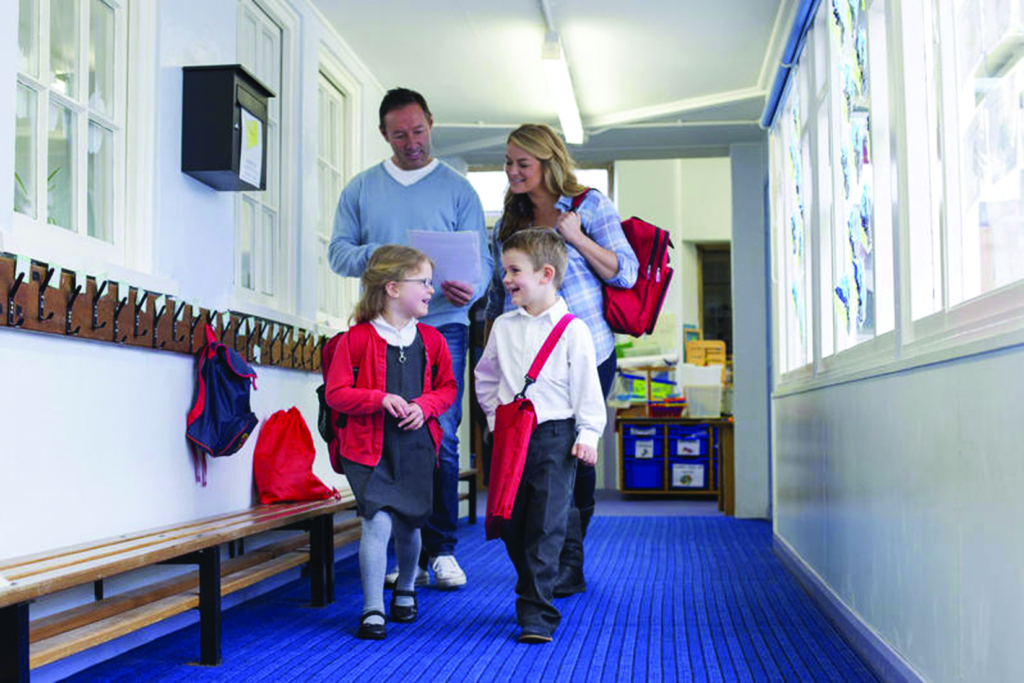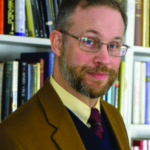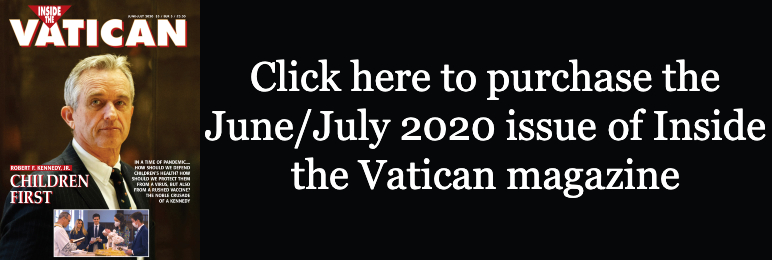How does Catholic teaching answer the fears of anti-homeschool crusaders?
By William Edmund Fahey

Are homeschoolers a danger to society? Homeschooling parents may wryly reply to such an absurd question, “No, but they are a menace to our family.” Yet the question is seriously entertained by lawyers, activists, and politicians. In June of this year, legal scholar Elizabeth Bartholet planned an invitation-only conference entitled “Homeschooling Summit: Problems, Politics, and Prospects of Reform.” The summit was to be held at Harvard University’s Law School where Bartholet is the Wasserstein Public Interest Professor of Law and the Director of the School’s Child Advocacy Program. Its goal: To set forth legal and political strategies for the reform of homeschooling.
What Bartholet and her colleagues envision is spelled out clearly in her 2020 Arizona Law Review article, “Homeschooling: Parents Rights, Absolutism vs. Child Rights to Education & Protection.” In this and an interview published in the May-June issue of Harvard Magazine, Prof. Bartholet states succinctly what “reform” means: “a presumptive ban on homeschooling.”
While respectful of parental “beliefs” and “convictions,” she sees parental-directed education as “essentially authoritarian,” and contends that all reasonable parents should be willing to give over their children to publicly-aligned and regulated school systems for six or seven hours a day. Should Catholics be disturbed or is this merely the hysteria of an isolated academic?
While it would be easy to dismiss Bartholet’s propositions for an effective ban on homeschooling as an unimaginable situation, one that would align American practice with countries like Cuba and North Korea, the reality is that homeschooling is illegal in modern democratic states like Germany and the Netherlands, and that anti-Christian Blaine provisions continue to carry legal power in the majority of U.S. states. Ironically, knowledge of the Catholic teaching on education might have actually diffused some of Prof. Bartholet’s concerns and afforded her an opportunity for reflection.
The concerns of Prof. Bartholet and her allies were anticipated nearly a century ago by Pope Pius XI in his encyclical Divini illius magistri, commonly called “On Christian Education” (hereafter Divini).
Promulgated on the last day of 1929, Pius XI’s Divini sets forth the classical position on parental, social, and Church rights and duties with respect to the goal of Christian education: “preparing man for what he must be and what he must do here below.” It is a project that involves the student, the parents, civil society, and the Church. Because the education of a Christian treats the sublime end for which a person is created, it would be abhorrent to surrender education to secular authorities — even a school that allowed embedded religious instruction for part of the day. Divini answers directly the concerns that Elizabeth Bartholet raises. First, she fears that parents are unqualified to teach since they receive no training or oversight. Pius makes careful distinctions in this regard.
The parents, because they are the natural origin of the child’s life, have both a right and duty to ensure the education of their child. Canon Law codifies this as follows: “Parents are under a grave obligation to see to the religious and moral education of their children, as well as to their physical and civic training, as far as they can…”
The parents’ right is inviolable because of their obligations as stewards over the child within the first community of natural relationships — the community of birth — and this right “cannot be destroyed or absorbed by the State,” according to Pius.
It is interesting to note that the Church has always promoted formal schooling. The reason is stated clearly by Pius XI: “the family of itself is unequal to the task” of a complete education because it is not a complete society unto itself. Hence, Pius states “it was necessary to create that social institution, the school.”
Pius XI’s ideas were developed subsequently by Pius XII and PaulVI, culminating in Gravissimum educationis (1965)and sections 2221-2231 of the Catechism of the Catholic Church. All consistently defend the grave obligation and right of parents in educating their children.
Under normal circumstances, a Catholic school is promoted — for social reasons and for the reality of teaching as a vocation. As Pius had noted earlier, “many parents have little or no preparation, immersed as they are in temporal cares.” In other words, while agreeing with Bartholet that biological status does not guarantee the particular teaching skills, the Church teaches that parents participate with the Holy Spirit and Church authorities in youth formation. However, “When the parents are found wanting either physically or morally, whether by default, incapacity or misconduct,” Piusstates, “it belongs to the State to protect the rights of the child.”
A careful reading of this text and knowledge of the Catholic tradition clarifies matters raised by Bartholet, points to some common ground and may disarm critics who accuse that home education leads to isolation or abuse. Further, the contention, voiced by Bartholet and others, that home education is largely a project of Christians — “extreme religious ideologues” — who want to withdraw from society, would be challenged.
The Catholic tradition is one of robust engagement. It is a tradition that, as Pius says, grants that the State should take steps “to secure that all its citizens have the necessary knowledge of their civic and political duties, and a certain degree of physical, intellectual, and moral culture.”
Yet, it must not use its power to establish “any monopoly” in education that would undermine the prior and higher rights of the Church and the family.
 Again, patience and humility may have shown Bartholet that the Christian educational tradition was a welcome bulwark against the very abuses she has dedicated her life to fighting. Pius XI, following Leo XIII, argued that any intellectual culture and training could be injurious to a young person if not grounded in “proper religious and moral instruction.” Does Prof. Bartholet, who claims to respect the beliefs of parents, accept what the Catholic Church has always understood as her very mission: “Teach ye all nations” (Matt. 28:19)? This is not a private “conviction” and it is certainly not a domestic form of “authoritarian control.”
Again, patience and humility may have shown Bartholet that the Christian educational tradition was a welcome bulwark against the very abuses she has dedicated her life to fighting. Pius XI, following Leo XIII, argued that any intellectual culture and training could be injurious to a young person if not grounded in “proper religious and moral instruction.” Does Prof. Bartholet, who claims to respect the beliefs of parents, accept what the Catholic Church has always understood as her very mission: “Teach ye all nations” (Matt. 28:19)? This is not a private “conviction” and it is certainly not a domestic form of “authoritarian control.”
What verges on authoritarianism is Prof. Bartholet’s recourse to the requirements of that form of schooling she accurately calls “compulsory education.” It is very true that Pius XI had stated unequivocally, “The education of youth is precisely one of those matters that belong both to the Church and to the State.” But where he argued for a “well-ordered harmony,” Bartholet sees instead a threat, with non-specialist, non-state teachers as leading to “real dangers to children and to society,” “near-absolute parental power,” and other such inflammatory visions. Her recommendations of political, legal, and financial curtailment are not just against homeschoolers, but also private and parochial schools. She judges parents to be providing a contentious, ideological formation, but does not see it as a usurpation of domestic life and the tradition of associative societies to limit family and religious formation only to that the period from “infancy to kindergarten;” after which state-regulated overseers should guide the child towards his enfranchisement within secular society.
Furthermore, Bartholet’s educational vision with its limitless “alternative perspectives” robs children of the normative formation needed not only for the intellect but the will. Ultimately, said Pius, the child becomes “a slave of his own blind pride and disorderly affections.”
In response to the Harvard Law School summit on homeschooling, Thomas More College held its own summit, which set forth the difficulties in Bartholet’s position and offered a variety of perspectives by speakers such as Princeton University’s Professor Robert George and the State of New Hampshire’s Commissioner for Education Frank Edelblut. The presentations are all available for free online (https://thomasmorecollege.edu/2020/05/who-owns-your-children-home-education-in-an-authoritarian-age/).At the time of writing, the Harvard conference has been indefinitely suspended.
 William Edmund Fahey, Ph.D., is the president of Thomas More College of Liberal Arts in Merrimack, New Hampshire.
William Edmund Fahey, Ph.D., is the president of Thomas More College of Liberal Arts in Merrimack, New Hampshire.







Facebook Comments